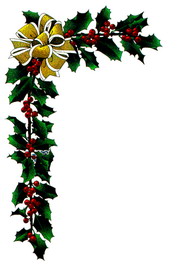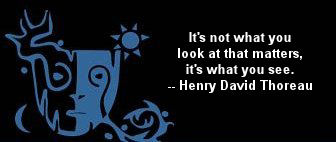|


Midwinter Traditions
by Dahna Barnett
from the December 2006 podcast,
Sparking Yule Logs & Spinning Dreydls
Ancient Scandinavia held a winter festival known as Yule. Logs were lit in honor of Thor, the god of thunder. The number of sparks that flew from the Yule logs foretold the number of pigs or calves to be born the next year. Feasting continued until the logs burned out, which, if the merry-makers could stay sober long enough to replenish the logs, took as many as twelve days.
Besides warmth, other kinds of heat are celebrated. In classic Rome, the Saturnalia was celebrated by the cessation of 'rules.' The city's entire populace, including its slaves, participated in feasts, song-sprees and gambling. The poet Catullus described it as the "best of days."
Rome also celebrated the winter solstice on December 25th. It was called Dies Natalis Solis Invicti, "the birthday of the unconquered sun."
In Germany, the holiday was called Mitwinternacht (mid-winter night) or Wintersonnenwende (winter solstice). The celebration included twelve Rauhnächte-harsh or wild nights-filled with more eating, drinking and prolonged revels.
Through the garbled wisdom of all of these traditions, our current celebrations of Christmas evolved. The celebration has always been about the birth of the light and so these were the days chosen to celebrate the birth of Jesus.
By the Middle Ages, Christmas became linked to the pagan traditions of feasting, singing and cavorting. Caroling became so popular that various writers of the time labeled it as 'lewd' and condemned its notorious drunkenness, promiscuity and gambling.
Another great event at this time of the year is the Jewish festival of lights and miracles, Hanukkah. The central image here as well, is of light shining in the dark, of human courage and devotion restoring the world. It is held on eight successive nights, beginning on the 25th day of Kislev, the third month of the Jewish calendar. The time frame corresponds to December in the Gregorian calendar. Hanukkah commemorates the rededication of the Temple of Jerusalem after Antiochus IV Epiphanes, king of Syria and overlord of Palestine, had profaned it.
Listen to the entire podcast Sparking Yule Logs & Spinning Dreydls
Return to Mythic Passages Menu
Subscribe to the Mythic Passages e-magazine
|

